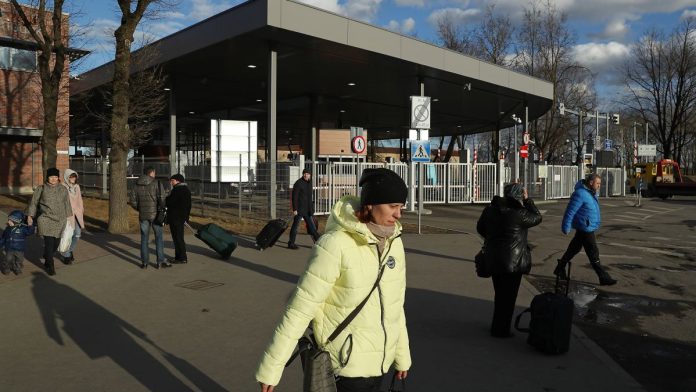Language adaptation of Ukrainian refugees in Estonia is successful, but they lack the funds for utilities. This became known from a study conducted by the Estonian Organization in cooperation with the International Migration Organization (IM). According to Postimees, half of the surveyed Ukrainians noted that their incomes allow you to cover the basic needs for food, medicine and other vital things.
However, about 18% of respondents indicated that there is only enough money for food, but not for utilities and the purchase of medicines. Another 18% can cover their costs, but do not have the opportunity for large purchases such as a car. According to the data, 7% of Ukrainians surveyed indicated that food is one of the basic needs. This indicator coincides with the share of registered unemployed among refugees, which indicates the economic vulnerability of this group.
The increase in the cost of life in Estonia also affected Ukrainian refugees. Approximately 20% of those surveyed said they were forced to buy cheaper food, and another 20% used their savings to pay for products, housing and medical services. 37% of refugees have savings for one month, 22% - for three months, 17% - for one week, and 12% do not have savings.
Over the past three months, 46% of respondents have received state aid or humanitarian support. Ukrainians receive this assistance on the same conditions as Estonians: parents provide family assistance, and, if necessary, renting, unemployment or pension subsidies.
At the time of the study, 64% of respondents were employed, which is a positive indicator for other European countries. In October, about 3,200 Ukrainians were in the unemployment office, which is 6.8% of all unemployed. A quarter of employees have a bachelor's degree and a fifth part - a master's degree. About 30% of Ukrainian refugees have professional or technical education, and a quarter - secondary or other specialized.
Most Ukrainian refugees work, only 7% are engaged in entrepreneurship, although the same number of respondents noted that they had their own business in Ukraine. The most common areas of employment among Ukrainians are production (23%), service sector (15%), hotel and restaurant business (12%) and construction (9%). 94% of employed had a written employment contract, others worked informally.
About 80% of Ukrainian refugees live in rented apartments. 80% of the 600 surveyed said they are coping with the cost of housing on their own, and the rest receive assistance from the state or relatives.


